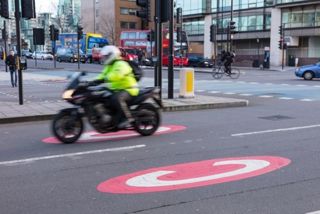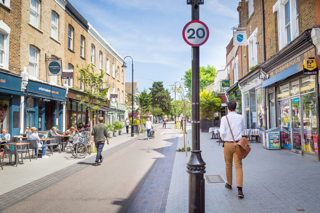Changes to the London Congestion Charge could encourage fleets to look at other ways to cut costs, rather than fulfilling the Mayor of London’s electric vehicle vision, suggests Marshall Leasing.
A number of London-based Marshall Leasing clients have admitted that the new Ultra Low Emission Discount will not prompt them to buy an electric fleet to run in the capital.
Instead, there was concern about how a price hike will be managed following the abolishment of the Green Vehicle Discount – and a suggestion that this could lead to a less than environmentally friendly solution being put in place once the three year ‘sunset period’ is up.
Vehicles emitting 100g/km or less of CO2 could benefit from a Greener Vehicle Discount – while electric vehicles had their own Electric Vehicle Discount – both of which reduced the amount the driver owed to zero.
This policy change has a significant financial implication for the fleet sector – not only because many fleet operators have chosen models with low emissions specifically to benefit from the Green Vehicle Discount, but also because the business overhead will suddenly go up once the discount has run its course, says Marshall Leasing.
The latest change could be construed in a number of ways – including as a part of the Mayor’s push towards an electric vehicle vision for the capital.
However, Marshall says that purchasing an all-electric fleet is not realistic for many businesses, and in the meantime adding an extra £10 per day per vehicle onto the cost of running a London fleet presents problems.
In response businesses may be tempted to look at other ways to balance costs – including purchasing cheaper, less environmentally friendly vehicles.
Jonathan Ross, sales and marketing director at Marshall Leasing, said: “Far from encouraging businesses to go electric, the feedback we’ve received suggests that businesses could instead be forced to find other ways to compensate for the Green Vehicle Discount abolishment – some of which could represent a move away from low emission vehicles.
“In a week when it was reported that despite government financial incentives, only three and half thousand drivers had taken up the offer to drive electric, the proposals appear to be optimistic to say the least.
“From both a business and consumer perspective there are problems with the electric vehicle vision.
“If you think about the practical issues associated with recharging a vehicle on London’s residential streets, where parking at night outside your home is hugely problematic, you can see how the notion of an electric conversion is so hard to envisage.
“Until the recharging infrastructure has been sorted out it is hard to see how the change in congestion charging will result in a switch to electric.”



















Login to comment
Comments
No comments have been made yet.